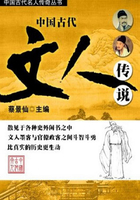1798
Departure of the squadron-Arrival at Malta-Dolomieu-General Barguay d'Hilliers-Attack on the western part of the island- Caffarelli's remark-Deliverance of the Turkish prisoners-Nelson's pursuit of the French fleet-Conversations on board-How Bonaparte passed his, time-Questions to the Captains-Propositions discussed -Morning music-Proclamation-Admiral Brueys-The English fleet avoided Dangerous landing-Bonaparte and his fortune-Alexandria taken-Kléber wounded-Bonaparte's entrance into Alexandria.
The squadron sailed on the 19th of May. The Orient, which, owing to her heavy lading, drew too much water, touched the ground; but she was got off without much difficulty.
We arrived off Malta on the 10th of June. We had lost two days in waiting for some convoys which joined us at Malta.
The intrigues throughout Europe had not succeeded in causing the ports of that island to be opened to us immediately on our arrival. Bonaparte expressed much displeasure against the persons sent from Europe to arrange measures for that purpose. One of them, however, M. Dolomieu, had cause to repent his mission, which occasioned him to be badly treated by the Sicilians. M. Poussielgue had done all he could in the way of seduction, but he had not completely succeeded. There was some misunderstanding, and, in consequence, some shots were interchanged. Bonaparte was very much pleased with General Baraguay d'Hilliers' services in Italy. He could not but praise his military and political conduct at Venice when, scarcely a year before, he had taken possession of that city by his orders. General Baraguay d'Hilliers joined us with his division,-which had embarked in the convoy that sailed from Genoa. The General-in-Chief ordered him to land and attack the western part of the island. He executed this order with equal prudence and ability, and highly to the satisfaction of the General-in-Chief. As every person in the secret knew that all this was a mere form, these hostile demonstrations produced no unpleasant consequences. We wished to save the honour of the knights-that was all; for no one who has seen Malta can imagine that an island surrounded with such formidable and perfect fortifications would have surrendered in two days to a fleet which was pursued by an enemy. The impregnable fortress of Malta is so secure against a 'coup de main' that General Caffarelli, after examining its fortifications, said to the General-in-Chief, in my presence, "Upon my word, General, it is luck: there is some one in the town to open the gates for us."
By comparing the observation of General Caffarelli with what has been previously stated respecting the project of the expedition to Egypt and Malta, an idea may be formed of the value of Bonaparte's assertion at St. Helena:
"The capture of Malta was not owing to private intrigues, but to the sagacity of the Commander-in-chief. I took Malta when I was in Mantua!"
It is not the less true, however, that I wrote, by his dictation, a mass of instructions for private intrigues. Napoleon also said to another noble companion of his exile at St Helena, "Malta certainly possessed vast physical means of resistance; but no moral means. The knights did nothing dishonourable, nobody is obliged to do impossibilities. No; but they were sold; the capture of Malta was assured before we left Toulon."
The General-in-Chief proceeded to that part of the port where the Turks made prisoners by the knights were kept.
The disgusting galleys were emptied of their occupants: The same principles which, a few days after, formed the basis of Bonaparte's proclamation to the Egyptians, guided him in this act of reason and humanity.
He walked several times in the gardens of the grandmaster. They were in beautiful order, and filled with magnificent orange-trees. We regaled ourselves with their fruit, which the great heat rendered most delicious.
On the 19th of June, after having settled the government and defence of the island, the General left Malta, which he little dreamed he had taken for the English, who have very badly requited the obligation. Many of the knights followed Bonaparte and took civil and military appointments.
During the night of the 22d of June the English squadron was almost close upon us. It passed at about six leagues from the French fleet. Nelson, who learned the capture of Malta at Messina on the day we left the island, sailed direct for Alexandria, without proceeding into the north. He considered that city to be the place of our destination. By taking the shortest course, with every sail set, and unembarrassed by any convoy, he arrived before Alexandria on the 28th of June, three days before the French fleet, which, nevertheless, had sailed before him from the shores of Malta. The French squadron took the direction of Candia, which we perceived on the 25th of June, and afterwards stood to the south, favoured by the Etesian winds, which regularly prevail at that season. The French fleet did not reach Alexandria till the 30th of June.
When on board the 'Orient' he took pleasure in conversing frequently with Monge and Berthollet. The subjects on which they usually talked were chemistry, mathematics, and religion. General Caffarelli, whose conversation, supplied by knowledge, was at once energetic, witty, and lively, was one of those with whom he most willingly discoursed. Whatever friendship he might entertain for Berthollet, it was easy to perceive that he preferred Monge, and that he was led to that preference because Monge, endowed with an ardent imagination, without exactly possessing religious principles, had a kind of predisposition for religious ideas which harmonised with the notions of Bonaparte. On this subject Berthollet sometimes rallied his inseparable friend Monge. Besides, Berthollet was, with his cold imagination, constantly devoted to analysis and abstractions, inclined towards materialism, an opinion with which the General was always much dissatisfied.
Bonaparte sometimes conversed with Admiral Brueys. His object was always to gain information respecting the different manoeuvres, and nothing astonished the Admiral more than the sagacity of his questions. I recollect that one day, Bonaparte having asked Brueys in what manner the hammocks were disposed of when clearing for action, he declared, after he had received an answer, that if the case should occur he would order every one to throw his baggage overboard.
He passed a great part of his time in his cabin, lying on a bed, which, swinging on a kind of castors, alleviated the severity of the sea-sickness from which he frequently suffered much when the ship rolled.
I was almost always with him in his cabin, where I read to him some of the favourite works which he had selected for his camp library. He also frequently conversed, for hours together, with the captains of the vessels which he hailed. He never failed to ask whence they came? what was their destination? what ships they had met? what course they had sailed? His curiosity being thus satisfied, he allowed them to continue their voyage, after making them promise to say nothing of having seen the French squadron.
Whilst we were at sea he seldom rose before ten o'clock in the morning. The 'Orient' had the appearance of a populous town, from which women had been excluded; and this floating city was inhabited by 2000 individuals, amongst whom were a great number of distinguished men. Bonaparte every day invited several persons to dine with him, besides Brueys, Berthier, the colonels, and his ordinary household, who were always present at the table of the General-in-Chief. When the weather was fine he went up to the quarter-deck, which, from its extent, formed a grand promenade.
I recollect once that when walking the quarter-deck with him whilst we were in Sicilian waters I thought I could see the summits of the Alps beautifully lighted by the rays of the setting sun. Bonaparte laughed much, and joked me about it. He called Admiral Brueys, who took his telescope and soon confirmed my conjecture. The Alps!
At the mention of that word by the Admiral I think I can see Bonaparte still. He stood for a long time motionless; then, suddenly bursting from his trance, exclaimed, "No! I cannot behold the land of Italy without emotion! There is the East: and there I go; a perilous enterprise invites me. Those mountains command the plains where I so often had the good fortune to lead the French to victory. With them we will conquer again."
One of Bonaparte's greatest pleasures during the voyage was, after dinner, to fix upon three or four persons to support a proposition and as many to oppose it. He had an object in view by this. These discussions afforded him an opportunity of studying the minds of those whom he had an interest in knowing well, in order that he might afterwards confide to each the functions for which he possessed the greatest aptitude: It will not appear singular to those who have been intimate with Bonaparte, that in these intellectual contests he gave the preference to those who had supported an absurd proposition with ability over those who had maintained the cause of reason; and it was not superiority of mind which determined his judgment, for he really preferred the man who argued well in favour of an absurdity to the man who argued equally well in support of a reasonable proposition. He always gave out the subjects which were to be discussed; and they most frequently turned upon questions of religion, the different kinds of government, and the art of war. One day he asked whether the planets were inhabited; on another, what was the age of the world; then he proposed to consider the probability of the destruction of our globe, either by water or fire; at another time, the truth or fallacy of presentiments, and the interpretation of dreams. I remember the circumstance which gave rise to the last proposition was an allusion to Joseph, of whom he happened to speak, as he did of almost everything connected with the country to which we were bound, and which that able administrator had governed. No country came under Bonaparte's observation without recalling historical recollections to his mind. On passing the island of Candia his imagination was excited, and he spoke with enthusiasm of ancient Crete and the Colossus, whose fabulous renown has surpassed all human glories. He spoke much of the fall of the empire of the East, which bore so little resemblance to what history has preserved of those fine countries, so often moistened with the blood of man. The ingenious fables of mythology likewise occurred to his mind, and imparted to his language something of a poetical, and, I may say, of an inspired character. The sight of the kingdom of Minos led him to reason on the laws best calculated for the government of nations; and the birthplace of Jupiter suggested to him the necessity of a religion for the mass of mankind. This animated conversation lasted until the favourable north winds, which drove the clouds into the valley of the Nile, caused us to lose sight of the island of Candia.
The musicians on board the Orient sometimes played serenades; but only between decks, for Bonaparte was not yet sufficiently fond of music to wish to hear it in his cabin. It may be said that his taste for this art increased in the direct ratio of his power; and so it was with his taste for hunting, of which he gave no indication until after his elevation to the empire; as though he had wished to prove that he possessed within himself not only the genius of sovereignty for commanding men, but also the instinct for those aristocratical pleasures, the enjoyment of which is considered by mankind to be amongst the attributes of kings.
It is scarcely possible that some accidents should not occur during a long voyage in a crowded vessel-that some persons should not fall overboard. Accidents of this kind frequently happened on board the 'Orient'. On those occasions nothing was more remarkable than the great humanity of the man who has since been so prodigal of the blood of his fellow-creatures on the field of battle, and who was about to shed rivers of it even in Egypt, whither we were bound. When a man fell into the sea the General-in-Chief was in a state of agitation till he was saved. He instantly had the ship hove-to, and exhibited the greatest uneasiness until the unfortunate individual was recovered. He ordered me to reward those who ventured their lives in this service. Amongst these was a sailor who had incurred punishment for some fault. He not only exempted him from the punishment, but also gave him some money. I recollect that one dark night we heard a noise like that occasioned by a man falling into the sea. Bonaparte instantly caused the ship to be hove-to until the supposed victim was rescued from certain death. The men hastened from all sides, and at length they picked up-what?-the quarter of a bullock, which had fallen from the hook to which it was hung. What was Bonaparte's conduct? He ordered me to reward the sailors who had exerted themselves in this occasion even more generously than usual, saying, "It might have been a sailor, and these brave fellows have shown as much activity and courage as if it had."
After the lapse of thirty years all these things are as fresh in my recollection as if they were passing at the present moment. In this manner Bonaparte employed his time on board the Orient during the voyage, and it was also at this time that he dictated to me the following proclamation:
HEADQUARTERS ON BOARD THE "ORIENT,"
The 4th Messidor, Year VI.
BONAPARTE, MEMBER OF THE NATIONAL INSTITUTE, GENERAL-IN-CHIEF.
SOLDIERS-You are about to undertake a conquest the effects of which on civilisation and commerce are incalculable. The blow you are about to give to England will be the best aimed, and the most sensibly felt, she can receive until the time arrive when you can give her her deathblow.
We must make some fatiguing marches; we must fight several battles; we shall succeed in all we undertake. The destinies are with us. The Mameluke Beys who favour exclusively English commerce, whose extortions oppress our merchants, and who tyrannise over the unfortunate inhabitants of the Nile, a few days after our arrival will no longer exist.
The people amongst whom we are going to live are Mahometans. The first article of their faith is this: "There is no God but God, and Mahomet is his prophet." Do not contradict them. Behave to them as you have behaved to the Jews-to the Italians. Pay respect to their muftis, and their Imaums, as you did to the rabbis and the bishops.
Extend to the ceremonies prescribed by the Koran and to the mosques the same toleration which you showed to the synagogues, to the religion of Moses and of Jesus Christ.
The Roman legions protected all religions. You will find here customs different from those of Europe. You must accommodate yourselves to them. The people amongst whom we are to mix differ from us in the treatment of women; but in all countries he who violates is a monster. Pillage enriches only a small number of men; it dishonours us; it destroys our resources; it converts into enemies the people whom it is our interest to have for friends.
The first town we shall come to was built by Alexander. At every step we shall meet with grand recollections, worthy of exciting the emulation of Frenchmen.
BONAPARTE.
During the voyage, and particularly between Malta and Alexandria, I often conversed with the brave and unfortunate Admiral Brueys. The intelligence we heard from time to time augmented his uneasiness. I had the good fortune to obtain the confidence of this worthy man. He complained bitterly of the imperfect manner in which the fleet had been prepared for sea; of the encumbered state of the ships of the line and frigates, and especially of the 'Orient'; of the great number of transports; of the bad Outfit of all the ships and the weakness of their crews. He assured me that it required no little courage to undertake the command of a fleet so badly equipped; and he often declared, that in the event of our falling in with the enemy, he could not answer for the consequences. The encumbered state of the vessels, the immense quantity of civic and military baggage which each person had brought, and would wish to save, would render proper manoeuvres impracticable. In case of an attack, added Brueys, even by an inferior squadron, the confusion and disorder amongst so great a number of persons would produce an inevitable catastrophe. Finally, if the English had appeared with ten vessels only, the Admiral could not have guaranteed a fortunate result. He considered victory to be a thing that was impossible, and even with a victory, what would have become of the expedition? "God send," he said, with a sigh, "that we may pass the English without meeting them!" He appeared to foresee what did afterwards happen to him, not in the open sea, but in a situation which he considered much more favourable to his defence.
On the morning of the 1st of July the expedition arrived off the coast of Africa, and the column of Septimus-Severus pointed out to us the city of Alexandria. Our situation and frame of mind hardly permitted us to reflect that in the distant point we beheld the city of the Ptolemies and Caesars, with its double port, its pharos, and the gigantic monuments of its ancient grandeur. Our imaginations did not rise to this pitch.
Admiral Brueys had sent on before the frigate Juno to fetch M. Magallon, the French Consul. It was near four o'clock when he arrived, and the sea was very rough. He informed the General-in-Chief that Nelson had been off Alexandria on the 28th-that he immediately dispatched a brig to obtain intelligence from the English agent. On the return of the brig Nelson instantly stood away with his squadron towards the north-east. But for a delay which our convoy from Civita Vecchia occasioned, we should have been on this coast at the same time as Nelson.
It appeared that Nelson supposed us to be already at Alexandria when he arrived there. He had reason to suppose so, seeing that we left Malta on the 19th of June, whilst he did not sail from Messina till the 21st. Not finding us where he expected, and being persuaded we ought to have arrived there had Alexandria been the place of our destination; he sailed for Alexandretta in Syria, whither he imagined we had gone to effect a landing. This error saved the expedition a second time.
Bonaparte, on hearing the details which the French Consul communicated, resolved to disembark immediately. Admiral Brueys represented the difficulties and dangers of a disembarkation-the violence of the surge, the distance from the coast,-a coast, too, lined with reefs of rocks, the approaching night, and our perfect ignorance of the points suitable for landing. The Admiral, therefore, urged the necessity of waiting till next morning; that is to say, to delay the landing twelve hours. He observed that Nelson could not return from Syria for several days. Bonaparte listened to these representations with impatience and ill-humour. He replied peremptorily, "Admiral, we have no time to lose. Fortune gives me but three days; if I do not profit by them we are lost." He relied much on fortune; this chimerical idea constantly influenced his resolutions.
Bonaparte having the command of the naval as well as the military force, the Admiral was obliged to yield to his wishes.
I attest these facts, which passed in my presence, and no part of which could escape my observation. It is quite false that it was owing to the appearance of a sail which, it is pretended, was descried, but of which, for my part, I saw nothing, that Bonaparte exclaimed, "Fortune, have you abandoned me? I ask only five days!" No such thing occurred.
It was one o'clock in the morning of the 2d of July when we landed on the soil of Egypt, at Marabou, three leagues to the west of Alexandria. We had to regret the loss of some lives; but we had every reason to expect that our losses would have been greater.
At three o'clock the same morning the General-in-Chief marched on Alexandria with the divisions of Kléber, Bon, and Menou. The Bedouin Arabs, who kept hovering about our right flank and our rear, picked up the stragglers.
Having arrived within gunshot of Alexandria, we scaled the ramparts, and French valour soon triumphed over all obstacles.
The first blood I saw shed in war was General Kléber's. He was struck in the head by a ball, not in storming the walls, but whilst heading the attack. He came to Pompey's Pillar, where many members of the staff were assembled, and where the General-in-Chief was watching the attack. I then spoke to Kléber for the first time, and from that day our friendship commenced. I had the good fortune to contribute somewhat towards the assistance of which he stood in need, and which, as we were situated, could not be procured very easily.
It has been endeavoured to represent the capture of Alexandria, which surrendered after a few hours, as a brilliant exploit. The General-in-Chief himself wrote that the city had been taken after a few discharges of cannon; the walls, badly fortified, were soon scaled. Alexandria was not delivered up to pillage, as has been asserted, and often repeated. This would have been a most impolitic mode of commencing the conquest of Egypt, which had no strong places requiring to be intimidated by a great example.
Bonaparte, with some others, entered the city by a narrow street which scarcely allowed two persons to walk abreast; I was with him. We were stopped by some musket-shots fired from a low window by a man and a woman. They repeated their fire several times. The guides who preceded their General kept up a heavy fire on the window. The man and woman fell dead, and we passed on in safety, for the place had surrendered.
Bonaparte employed the six days during which he remained in Alexandria in establishing order in the city and province, with that activity and superior talent which I could never sufficiently admire, and in directing the march of the army across the province of Bohahire'h. He sent Desaix with 4500 infantry and 60 cavalry to Beda, on the road to Damanhour. This general was the first to experience the privations and sufferings which the whole army had soon to endure. His great mind, his attachment to Bonaparte, seemed for a moment about to yield to the obstacles which presented themselves. On the 15th of July he wrote from Bohahire'h as follows: "I beseech you do not let us stop longer in this position. My men are discouraged and murmur. Make us advance or fall back without delay. The villages consist merely of huts, absolutely without resources."
In these immense plains, scorched by the vertical rays of a burning sun, water, everywhere else so common, becomes an object of contest. The wells and springs, those secret treasures of the desert, are carefully concealed from the travellers; and frequently, after our most oppressive marches, nothing could be found to allay the urgent cravings of thirst but a little brackish water of the most disgusting description.
-[Some idea of the misery endured by the French troops on this occasion may be gathered from the following description is Napoleon's Memoirs, dictated at St. Helena:
"As the Hebrews wandering in the wilderness complained, and angrily asked Moses for the onions and flesh-pots of Egypt, the French soldiers constantly regretted the luxuries of Italy. In vain were they assured that the country was the most fertile in the world, that it was even superior to Lombard; how were they to be persuaded of this when they could get neither bread nor wine?? We encamped on immense quantities of wheat, but there was neither mill nor oven in the country. The biscuit brought from Alexandria had long been exhausted; the soldiers were even reduced to bruise the wheat between two stones and to make cake which they baked under the ashes. Many parched the wheat in a pan, after which they boiled it.
This was the best way to use the grain; but, after all, it was not bread. The apprehensions of the soldiers increased daily, and rose to such a pitch that a great number of them said there was no great city of calm; and that the place bring that name was, like Damanhour, a vast assemblage of mere huts, destitute of everything that could render life comfortable or agreeable. To such a melancholy state of mind had they brought themselves that two dragoons threw themselves, completely clothed, into the Nile, where they were drowned. It is nevertheless true that, though there was neither bread nor wine, the resources which were procured with wheat, lentils, meat, and sometimes pigeons, furnished the army with food of some kind. But the evil was, in the ferment of the mind.
The officers complained more loudly than the soldiers, because the comparison was proportionately more disadvantageous to them. In Egypt they found neither the quarters, the good table, nor the luxury of Italy. The General-in-Chief, wishing to set an example, tried to bivouac in the midst of the army, and in the least commodious spots. No one had either tent or provisions; the dinner of Napoleon and his staff consisted of a dish of lentils. The soldiers passed the evenings in political conversations, arguments, and complaints. 'For what purpose are we come here?' said some of them, 'the Directory has transported us.' 'Caffarelli,' said others, 'is the agent that has been made use of to deceive the General-in-Chief.' Many of them, having observed that wherever there were vestiges of antiquity they were carefully searched, vented their spite in invective against the savants, or scientific men, who, they said, had started the idea of she expedition to order to make these searches. Jests were showered upon them, even in their presence. The men called an ass a savant; and said of Caffarelli Dufalga, alluding to his wooden leg, 'He laughs at all these troubles; he has one foot to France.'"]














